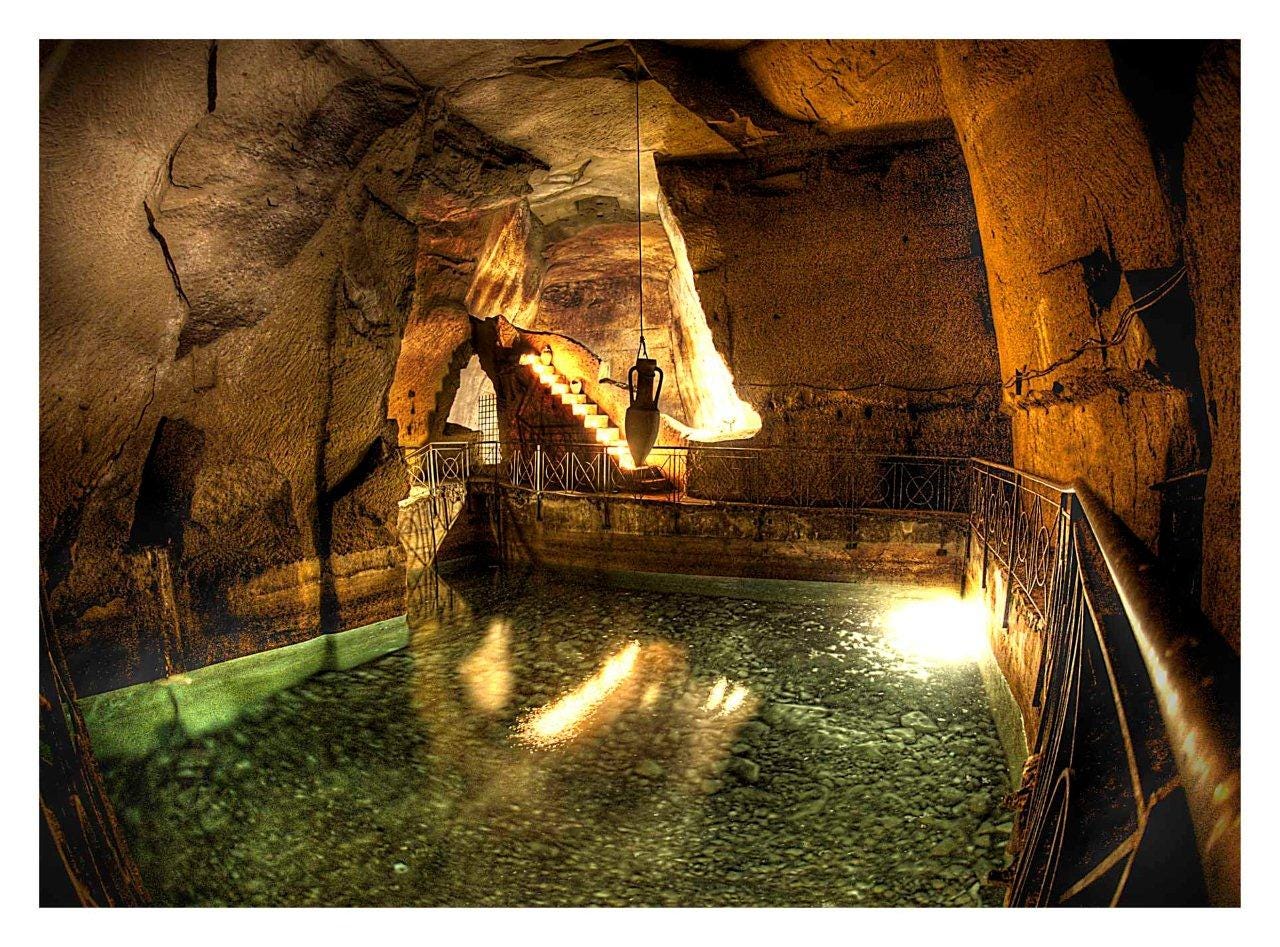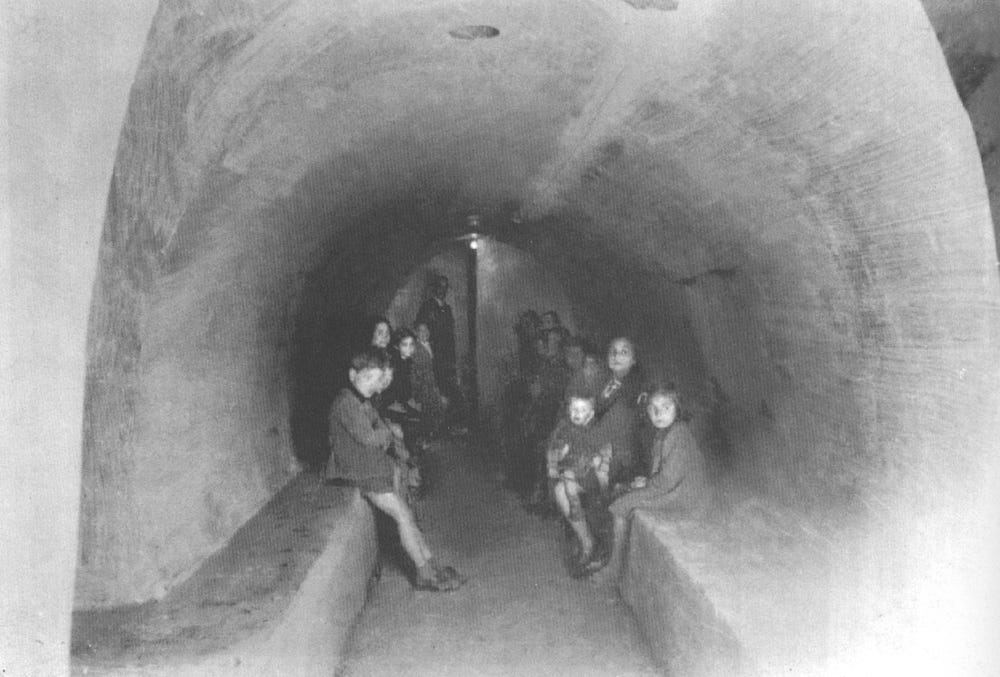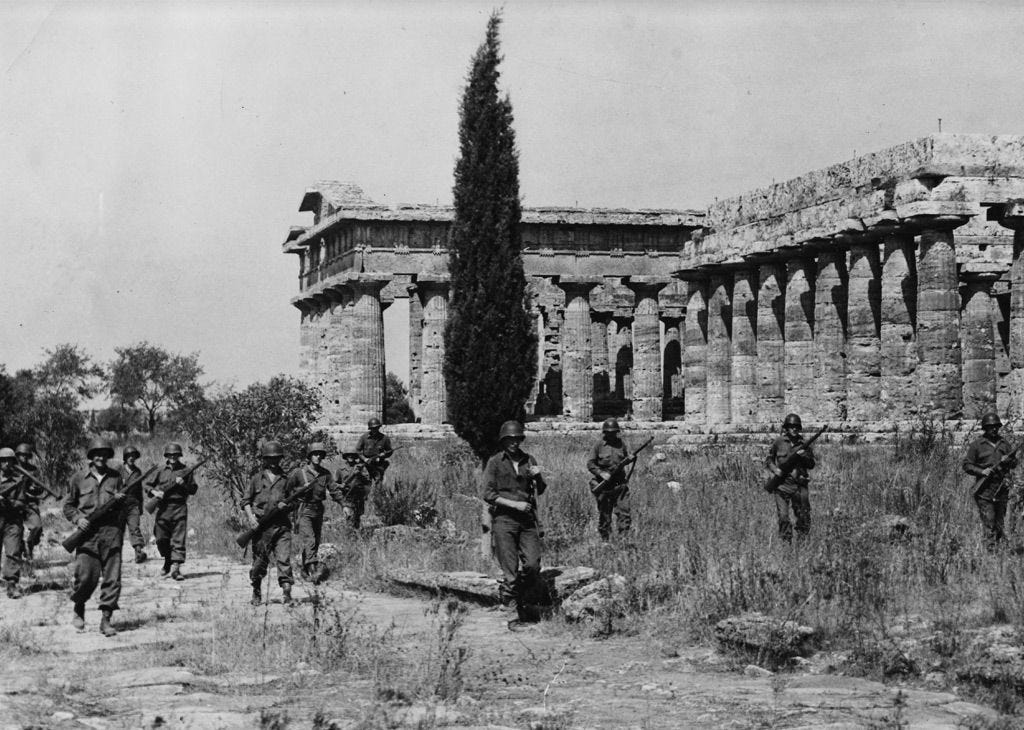The Four Days of Naples
A reflection on World War II in honor of Ukrainians
One of the must-see sites in Naples is the underground city. The tours called Napoli Sotterranea take you underneath the narrow streets of the historic center to explore the ancient Greek cisterns and Roman markets right below your feet.
The first artifact you encounter is a child’s tricycle. Next you’ll see a pile of gas masks and an unexploded bomb. The tour guide explains how families hid in these lightless caverns during World War II. While searching for deeper cover from the ceaseless bombings, they inadvertently excavated 3,000 years of history.
From 1940 to 1943 Naples endured approximately 200 air raids by the Allied forces which killed over 20,000 citizens. Most of the bombs were aimed at ports, factories, and key pieces of infrastructure, though carpet bombing in residential areas was undertaken to instigate a citizen revolution against the Germans.
The worst bombings came when the Allies entered Italy at the beaches at Paestum and the retreating Germans undertook the orders to leave Naples an empty, smoldering ruin. They massacred citizens and destroyed the State Archives of Naples which was then the largest repository of medieval documents in Europe. The reason you know much more about Florence, Venice, and Rome than Naples is because its history was strategically firebombed by the Nazis.
On September 22, 1943 all Neapolitan men from ages 18 to 33 were ordered to be deported to work camps in Northern Italy and Germany. After months of organized protests and clashes with the military, Neapolitan of all ages erupted like the lava in their own volcano in an event now called the Four Days of Naples. When the Allies arrived on October 1st, they found a starving, but proud population of citizens who had liberated themselves.
World War II strategy buffs are always eager to refute the local retelling of the Four Days of Naples. Many stories like that of the scugnizzi - homeless, orphaned children who dove into the Bay of Naples to disarm German ships, were reimagined in the 1962 film “Quattro Gionate di Napoli.” But I believe apocryphal stories should never be dismissed because that’s where the spirit of a time and place can be excavated. We are bearing witness to it right now as ordinary Ukrainian citizens fight against an outsized power.
Our thought, our song
Will not die, will not perish…
Oh there, people, is our glory,
Glory of Ukraine!
By Taras Shevchenko
Related: The Important Detail You Missed in “My Brilliant Friend”.





You should organize a tour around these WW2 points of interest!